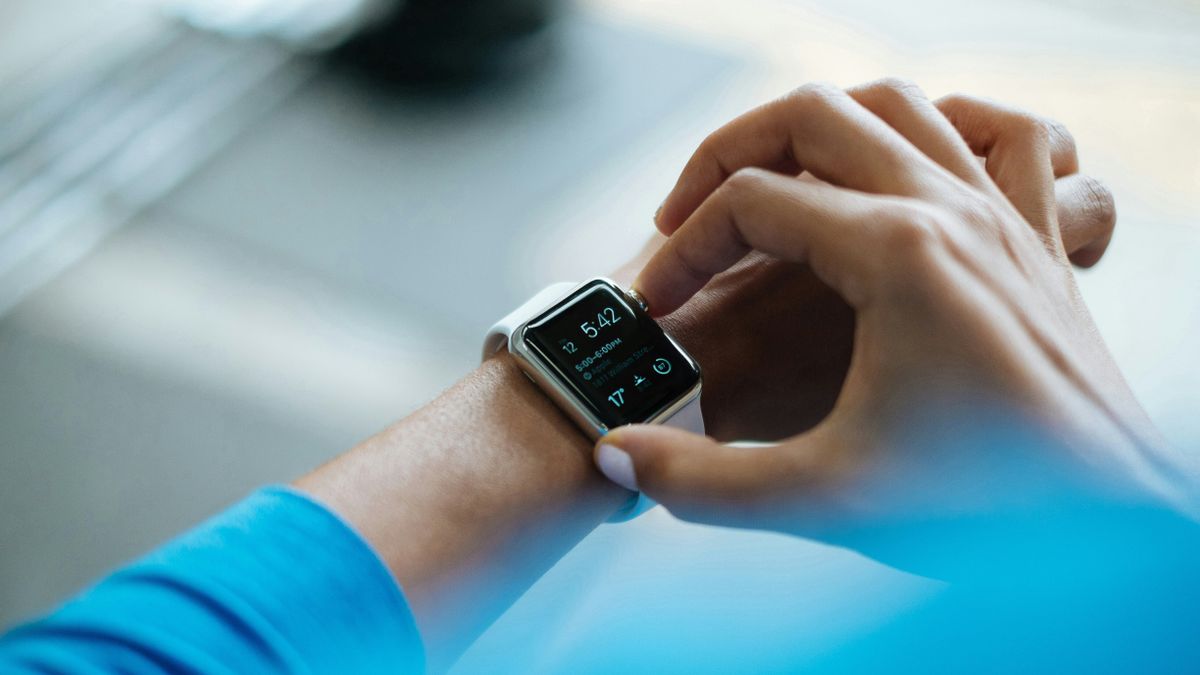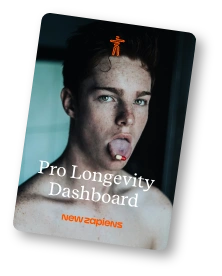Measuring what matters? The challenges of quantifying the living self…

Biohacking – seriously?
WHAT? You don’t collect the biodata of your entire organism around the clock? And you don’t have 30+ doctors to constantly monitor your well-being and carry out sophisticated tests? And – even worse – you’re not pondering new quantifiable longevity interventions all day long?
How *can* you be a serious biohacker?!?
OK, so let’s face it, we can’t all be Bryan Johnson (and we may not want to).
Nevertheless, serious biohacking relies on meaningful and accurate measurement modalities. Indeed, what’s the point of “punishing” health routines or “risky” interventions if there’s no tangible added value?
So, as a mere (im)mortal, with a day job, friends, maybe a family, and other hobbies beyond longevity, you are faced with a quandary. The quandary of what to measure, how (much) to measure, how frequently and, last but not least, how to correctly interpret the data obtained – i.e., on your own, with professional help and/or with AI.
Lost in the data forest
Because that’s the dizzying part, isn’t it? The data challenge…
There are now myriad bio-/performance markers you can access and choose from. You can collect your data actively or passively. You can focus on DIY or professional data, or both. Indeed, not only can you rely on traditional medical check-ups, but you can also self-surveil with wearables and all manner of other appliances. Furthermore, you can access a cornucopia of sophisticated consumer health tests – covering anything from proteomics to microbiome composition, through food allergies.
So, while it makes sense to track basic health parameters as well as personal issues and areas you want to improve, you may be left with a nagging uncertainty and wonder, “Am I really getting the bigger picture here? What could I be missing?”.
Hmm, the essence of the body as a *living* being, maybe?
Beyond the flesh machine
Because this is where the metaphor of “body as machine” breaks down, since the body is so much more than the sum of its parts.
Indeed, we are all aware that:
perfect heart health + perfect gut health + perfect (you name it) does not necessarily = perfect health (or increased longevity).
What a bummer…
So, that’s the ultimate biotechnological challenge, isn’t it? Adequately capturing the body as a living organism with self-developing, self-organising, self-regulating and self-repairing capacities. But also, as an organism highly dependent on the inputs of its environment(s) over time to maintain balance or “homeostasis”, as it is called in medical jargon.
What can we then do until science understands and manages to model the most intimate workings of our individual bodies with all their idiosyncrasies? Will there ever be a convincing model with which we can assess ourselves and confidently affirm, “I am perfectly healthy, and chances are I will live to be a healthy 100!”?
Well, AI or AGI may eventually help us to obtain a web of interlocking factors that (appear to) signify and/or promote human health, hence longevity.
The software of life
Meanwhile, however, a promising strategy to get the bigger picture of our health and longevity lies in the field of epigenetics since epigenetics is especially attuned to the individual, living and evolving dimensions of our bodies.
But what is epigenetics?
Put simply (but mechanistically: sorry!), epigenetics is the field that studies the biochemical “software” around your genome that activates or silences your DNA “hardware”. The most common “switch” examined is so-called methylation that occurs at specific sites of the genome called CpGs.
So, you inherit your DNA hardware from your parents as both fact (e.g., the colour of your eyes) and potential (e.g., the propensity towards certain health conditions). And there’s not much you can do about it, since it has evolved very slowly over generations.
But the good news is that this inheritance only has a limited influence on your health and longevity outcomes. Current estimates are between 10 to 20%.
Hence, you need not be blighted with “bad” genes!
Indeed, the epigenetic software, which we partially inherit but which is mostly steered by our environment, is dynamic. And since you have at least some control over what surrounds you, you can actively (or passively) influence your health, hence your longevity.
More concretely: the way you live your life, i.e. eat, move, sleep, manage your stress, etc. has a massive impact on your healthspan.
From epigenetics to biological ageing
“Yeah, yeah, OK, but that’s not really new, is it? Even my Gran could have told you that… What about the hard stuff? The biohacking and the measuring?”
Well, that’s where it gets really interesting.
In the past decade – starting with Hannum’s and Horvath’s first groundbreaking epigenetic clocks – epigeneticists have been developing biochemical tests or so-called “clocks” to precisely measure the overall ageing of the body.
You’ve surely noticed this discrepancy: some people celebrating their 70th birthday look ready for the nursing home, while others are planning to solo-climb the Kilimanjaro. How come?
This is because the body does not necessarily age linearly. So, it may or may not be in synch with the candles on your birthday cake.
For instance, if you’re confronted with a major stressor – say, you unexpectedly lose your job or your partner dies – chances are that this traumatic event will take a toll on your health, hence your longevity. So, your biological ageing can suddenly (and brutally) accelerate. It may even visibly show up as “overnight” white hair or a sallow, wrinkled complexion.
But in uneventful or more harmonious times, ageing can increase very slowly, or even plateau as well as potentially decrease.
Hence, the aim of an epigenetic clock is to capture a still or snapshot within the film of your ageing. The biological age determined by the clock enables you to compare it with your chronological age and see whether you are ageing more rapidly or slowly than your age cohort.
Biological age: a super-marker?
So, for biohackers, what are the advantages of tracking biological age compared to other markers?
To tackle this “philosophical” question, you need to look back at the evolution of epigenetic clocks.
Originally, epigenetic clocks were strictly meant for experimental settings and were extremely expensive and unwieldy to run. Even more crucially, biological age estimates were not very precise and were difficult to replicate.
This could be due to any number of factors: the types of tissues or fluids from which DNA was extracted, the identity and/or number of genomic regions (CpGs) analysed and their correlations with ageing, the architecture of the algorithms, small or inadequate training cohorts as well as technical noise.
All these issues made them unsuitable for the average consumer. Nowadays, however, with 3rd and soon 4th generation clocks, many of these issues have been overcome and the tests have become much more user-friendly and affordable.
There are of course different analytical methodologies championed within the epigenetic scene. Many companies still bet on so-called chip-arrays that promise extensive coverage of a large number of CpGs but lead to, e.g., problems with replication, due to technical noise and other issues. Other companies have already switched to so-called NGS (or Next Generation Sequencing). This new technology involves fewer CpGs but more in-depth analysis, making for better replication and significant cost-cutting, among other aspects.
Most significantly, however, researchers are now able to zone in on the CpGs that most convincingly correlate with ageing.
And that is the major advantage of biological age as a marker. Epigenetic testing usually takes a meta-approach to measuring ageing, rather than concentrating on the ages of particular fluids, tissues, organs or metabolic systems in the body (though some clocks also target the micro-level).
So, instead of looking for direct causal links to ageing, the epigenetic focus is on an overall correlation with ageing.
Why does this approach make sense?
It makes sense because ageing is an extremely complex process we are only beginning to unravel. A process involving a myriad changes on both micro- and macro-levels of the body, as described by the “hallmarks of ageing” model.
Hence, depending on your health history, it may certainly make sense to specifically monitor your blood sugar or your microbiome. But it is also crucial to obtain a more comprehensive picture of your health and ageing – a picture that captures ageing at a systemic level.
And, currently, biological age determination is the best strategy to do just that.
Current limitations and future promises
Because epigenetic testing is still in its infancy as a technology, a lot remains to be done. There are already many peer-reviewed studies focusing on the impact of disease and stress on biological ageing, but there are still few studies on the effects of positive lifestyle changes.
This has to do with the well-known challenge of financing experiments based on lifestyle modifications rather than drug-based interventions. But another difficulty arises from designing studies that enable the isolation of a particular lifestyle factor for investigation.
Indeed, because their focus is usually systemic, current epigenetic tests are not attuned to singling out specific aspects of lifestyle such as nutritional habits or sleep patterns.
So, as a biohacker, if you wish to monitor the effects of your new sports routine using epigenetic testing, you will have to ensure that you do not change other variables in your lifestyle at the same time (such as e.g., supplementation).
And beyond the realm of what you may be able to control, there are other “random” factors that can muddy the waters.
For instance, some illnesses – especially highly infectious ones such as Covid-19 or the flu – as well as pronounced inflammatory states can initially accelerate biological ageing. Upon recovery, however, biological age typically returns to the baseline.
Moreover, stress (be it sudden and/or chronic) also appears to have deleterious effects. Here again, though, biological age can normalise over time if stress is alleviated.
From an empirical and, as yet, very anecdotal perspective, some interesting patterns are emerging, as reported by individuals frequently testing themselves and physicians testing their patients on a regular basis:
- Some positive lifestyle changes may be rapidly reflected in biological age, others may take longer.
- Radical positive changes may initially cause age acceleration because the body initially perceives them as stress. This tends to reverse over time.
- Synergistic changes, such as concurrently improving nutrition, sleep and movement while mitigating stress, seem to pay the highest and fastest dividends.
- Nevertheless, biology remains very individual: the same habits, routines, and supplements tend to have different effects on different people.
Obviously, these tentative findings will have to be confirmed by peer-reviewed studies. But they open fascinating vistas for dedicated biohackers who are intent on quantifying their individual, living and evolving selves!
References
Author: Gwen Bingle
Historian of technology with a passion for embodied holistic health. Content & support manager at epiAge Germany since 2022. Gwen likes to mediate and translate – whether it’s connecting the dots between seemingly heterogenous fields or finding relatable ways to convey complex stuff. She plunged into healthy longevity as a young adult while facing a major health challenge.




